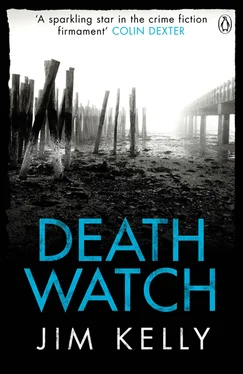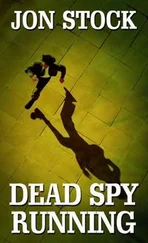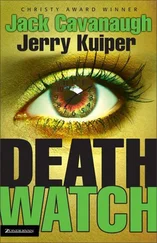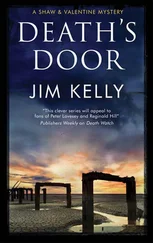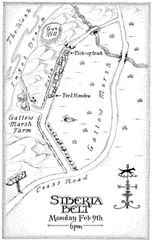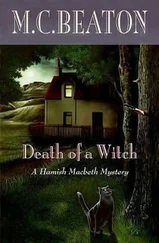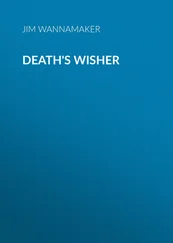Jim Kelly - Death Watch
Здесь есть возможность читать онлайн «Jim Kelly - Death Watch» весь текст электронной книги совершенно бесплатно (целиком полную версию без сокращений). В некоторых случаях можно слушать аудио, скачать через торрент в формате fb2 и присутствует краткое содержание. Жанр: Полицейский детектив, на английском языке. Описание произведения, (предисловие) а так же отзывы посетителей доступны на портале библиотеки ЛибКат.
- Название:Death Watch
- Автор:
- Жанр:
- Год:неизвестен
- ISBN:нет данных
- Рейтинг книги:3 / 5. Голосов: 1
-
Избранное:Добавить в избранное
- Отзывы:
-
Ваша оценка:
- 60
- 1
- 2
- 3
- 4
- 5
Death Watch: краткое содержание, описание и аннотация
Предлагаем к чтению аннотацию, описание, краткое содержание или предисловие (зависит от того, что написал сам автор книги «Death Watch»). Если вы не нашли необходимую информацию о книге — напишите в комментариях, мы постараемся отыскать её.
Death Watch — читать онлайн бесплатно полную книгу (весь текст) целиком
Ниже представлен текст книги, разбитый по страницам. Система сохранения места последней прочитанной страницы, позволяет с удобством читать онлайн бесплатно книгу «Death Watch», без необходимости каждый раз заново искать на чём Вы остановились. Поставьте закладку, и сможете в любой момент перейти на страницу, на которой закончили чтение.
Интервал:
Закладка:
Jim Kelly
Death Watch
1
Saturday, 5 September 1992
The moment Bryan Judd’s twin sister died — that very instant — he was sitting on an abandoned sofa on the waste ground behind Erebus Street. He’d gone to the mini-market and bought a can of Special Brew which he was drinking slowly in the vertical summer heat, listening to his radio. The signal came and went, like an audible mirage, but he sang in the gaps, expertly finding the key, knowing all the words of ‘Success Has Made a Failure of Our Home’, mimicking the Elvis Costello cover, not this version by Sinead O’Connor. The beer was warm, the tin damp, and the alcohol made him feel better about the night to come — about what it might hold for him. Ally had said she’d meet him outside the Lattice House. Her skin was always cool, even in this endless summer, and he’d found that to seek it, taut under his fingertips, had become an obsession. He smiled, tipped his head back, and drank, despite the taste of metal in his mouth.
And then his twin, Norma Jean, was there with him, a presence as physically real as the tin can in his hand. He never had any warning, there was never a sense in which she approached. She was just there. Inside him. They told people it wasn’t a link between their minds, it was a link between their bodies, as if the intimacy they’d shared in
But this wasn’t like the other times. This was a violent shock, a blow. The beat of his heart became slow and hard, thudding, as if he were running, or hiding; and in the background he could hear her heartbeat, a mirror image of his own. His blood rushed in his ears and he knew the emotion she was feeling was fear; then, with a jolt which seemed to tear at the muscles that held his heart in place, the fear escalated into terror. He tried to stand, wanting to go to her, but his knees buckled and he knelt, not feeling the shard of glass that cut into the soft tissue below his knee.
And then, despite the sun, a shocking coldness covered his face, and his neck; and all the noises of the day — the creaking dockside crane, the traffic on the inner ring road — became dull, and distant, as if heard under water. The coldness enclosed his head, his shoulders, inside his mouth, and down his throat. He tried to gulp air but there was something in his throat, something slippery and cold. He gagged, spewing vomit down his T-shirt. He tried to fill his lungs but there was nothing there, just this fluid cloak of suffocation over his head and shoulders.
He was drowning, on a summer’s day, on a dusty piece of waste ground as dry as bones.
He tried to stand, but fell back on the sofa, blacking out.
The lost heartbeat made him run to find her: across the waste ground, around the back of the Sacred Heart of Mary and down the street to his house, past the launderette where his mother worked, the windows clouded with condensation. As he passed he heard his baby brother crying from the pushchair by the open door.
The front door of their house, next to the launderette, opened as he got to it and his father came out, pulling it closed behind him, pushing a hand through a shock of white hair like a wallpaper brush, thick with paste.
‘It’s Norma,’ said Bryan. ‘Something’s happened…’
His father brushed a hand over his lips and Bryan noticed the bib of sweat which stained his shirt.
‘Jesus, Bry,’ said his father, who was looking at the blood on his son’s trouser leg, below the knee, and a cut on his cheek.
Bry pushed past, just stopping the door before the lock dropped, running halfway up the stairs.
‘Norma!’ He stood, listening to the familiar sounds of the house: a clock ticking, the cat flap flapping.
His father came to the foot of the stairs, looking at him through the banisters, as if they were bars on a cell. ‘Your
The bedroom door to his sister’s room was open, the bed inside made, but dented, as if she’d thrown herself on it. In the bathroom there was a trickle of water still running to the plughole, and a single bloody fingerprint on the edge of the bath.
He felt his father at his shoulder.
‘I felt her, drowning…’ said Bryan.
He could smell his father now. Cheap talc, and the cream he put in his hair. Bryan looked at his father and saw that he’d cut himself shaving.
‘She walked out twenty minutes ago. She’s fine.’ Their eyes met. ‘We argued, that’s all — about the baby. That’s all you felt, Bry — she’s upset. Now leave it. Please.’
His father leant forward, pulled some toilet paper from the holder, and wiped the bloody print from the ceramic white edge of the bath.
Sunday, 5 September 2010
Eighteen years later to the day
When the lights went out Darren Wylde was at Junction 47. It was the last thing he saw — the big stencil-painted numbers — before the shadows rushed out of the corners. He stood still, the dark pressing in, making his skin crawl, as though he were hiding in a wardrobe full of fur coats. He looked at his luminous watch for comfort: 8.16 p.m. Down here, under the hospital, the lights often failed, but the back-up generator would be online in seconds. He started counting slowly and he’d got to forty-seven before the emergency lighting flickered on: which was spooky, because there it was — the big number on the wall: 47. Spooky. The weak emergency lighting didn’t really help; stillborn, barely struggling free of the neon tubes, creepier than the dark.
It was a T-junction; and so he could see three ways. Left towards the incinerator. Right? He thought that might be the corridor to the hospital organ bank. And back, over his shoulder, was the zigzag route to the lift shafts which led up to the main wards, A amp;E, and outpatients. But down here no one moved within sight. He caught only the echo of one of the little electric tugs, hauling laundry, a specific sound against the background
This was Level One: a catacomb; a maze, in which a map was useless. There were small signs at crossroads, and some of the T-junctions, but you needed to know your way. He’d done Theseus and the Minotaur at school, and he knew that the Greek word for the ball of twine that the prince used to find his way out was the origin of the modern word clue . A smile lit up his face, because he loved that, the way the past was part of his life today.
Every corridor on Level One was the same: the walls bare concrete, services in dusty pipes running overhead, humming like a ship’s insides. That’s what it was like, he thought, Jonah and the Whale, and he was down amongst the intestines, the lurid coloured pipes, like he’d been swallowed whole.
Turning left, he walked quickly towards the incinerator, trying to forget what he carried; trying to forget why he was down here at all, when he could have walked through the hospital, down the long bright corridor with the children’s mural, the yellow bag swinging in his hand. But the theatre manager on surgery had spelt it out: Level One, and get it signed for. He felt the weight in the yellow plastic bag. His stomach gently flipped the full English he’d crammed down in the staff canteen for tea: runny eggs, sunny-side down, oozing out onto the greasy plate. Gulping, he tried to suck in some cool air; but it was fetid, unmoving, hot. Outside, above his head now, the hospital tarmac would be cooling in the dusk. Here, the heat went on, defying the sunset.
Darren hitched up his jeans with one hand and walked faster. It wasn’t a bad job as summer jobs went. Usually,
But sometimes they sent him on foot. The yellow bag would be too big, an odd shape, and they didn’t want any breakages in the chute system because then they’d have to have it deep-cleaned. Or the yellow bag would have that little sign on it: the three-cornered trefoil, the radiation symbol. Or the chemotherapy warning label. So those bags he’d have to take down to Level One himself. And at weekends, when they pushed through the private patients, there’d be hardly any tugs working, so they’d send him on foot then as well, because the last thing they wanted was a backlog, not in this heat.
Читать дальшеИнтервал:
Закладка:
Похожие книги на «Death Watch»
Представляем Вашему вниманию похожие книги на «Death Watch» списком для выбора. Мы отобрали схожую по названию и смыслу литературу в надежде предоставить читателям больше вариантов отыскать новые, интересные, ещё непрочитанные произведения.
Обсуждение, отзывы о книге «Death Watch» и просто собственные мнения читателей. Оставьте ваши комментарии, напишите, что Вы думаете о произведении, его смысле или главных героях. Укажите что конкретно понравилось, а что нет, и почему Вы так считаете.
